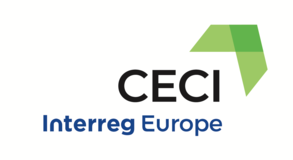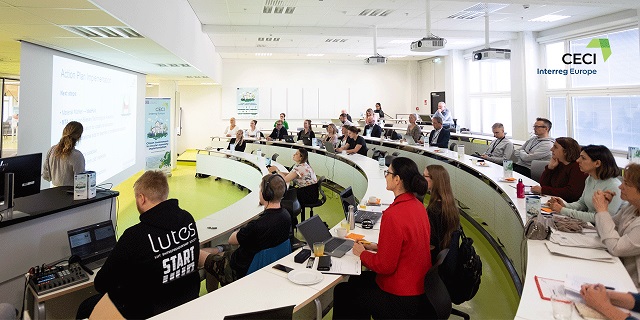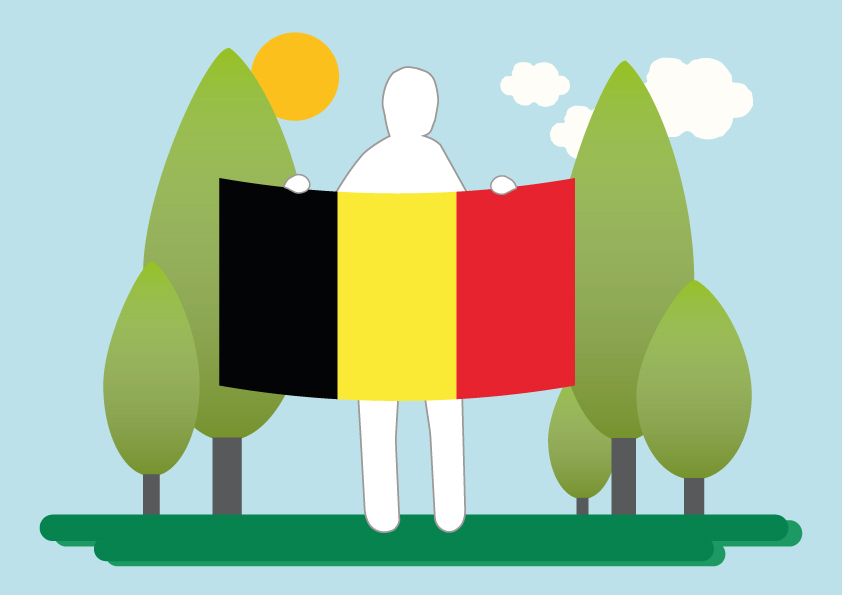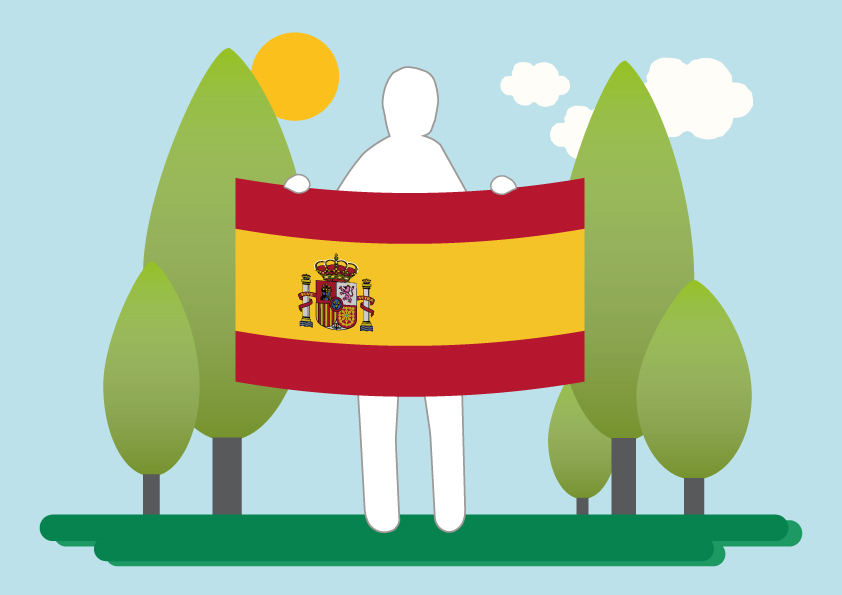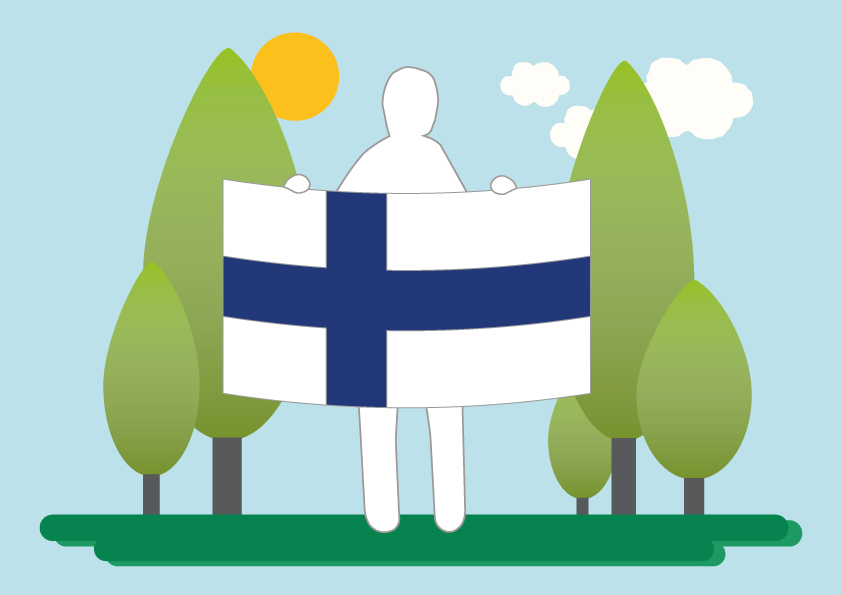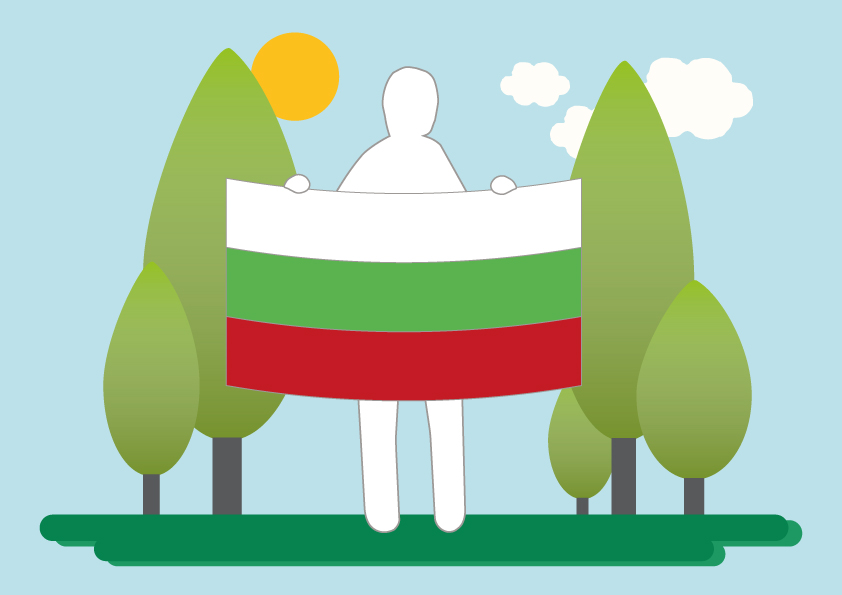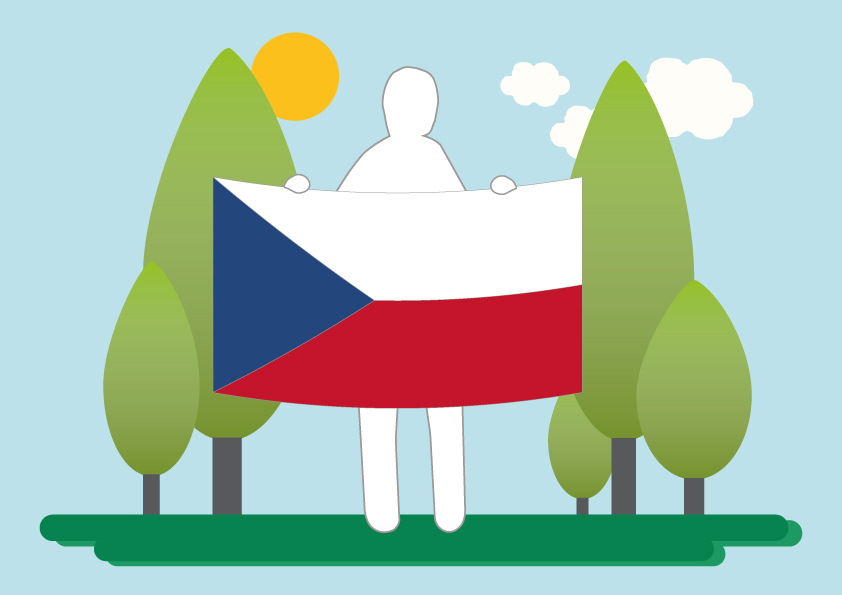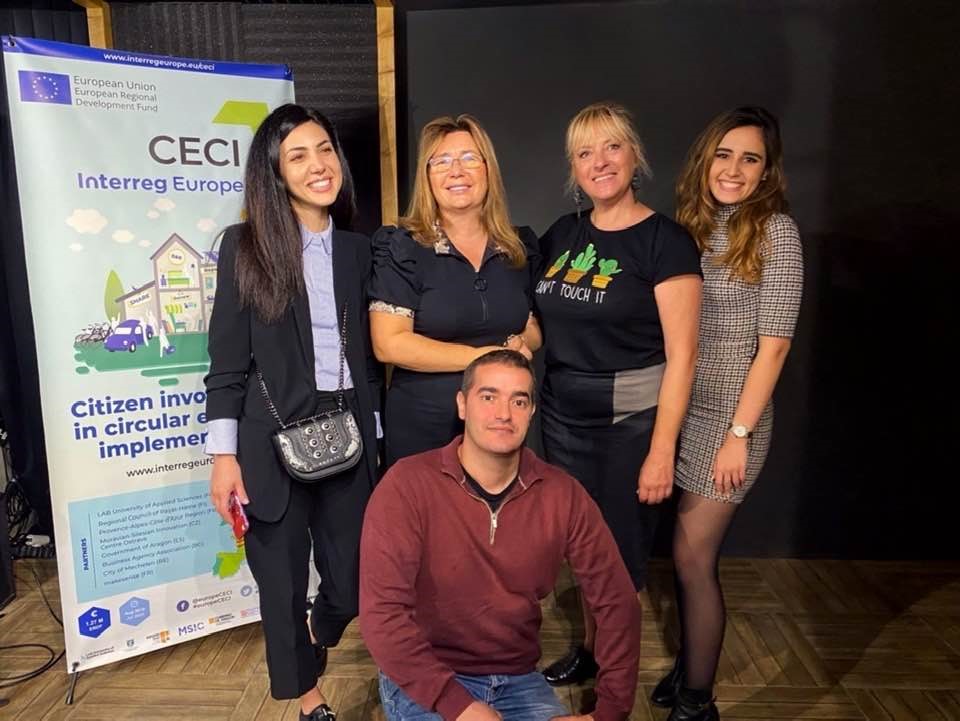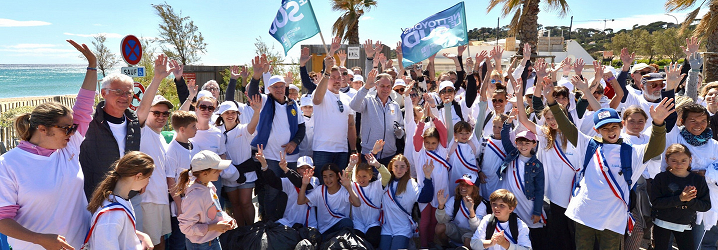A recently started project CECI involves six regions in Europe to improve their policy instruments in context of citizen involvement and circular economy. Through sharing good practices between partners, participating in training and workshops and creating action plans to improve policy instruments, the regions can provide better possibilities for their citizen to adopt new circular and sharing economy solutions. A systematic change in consumption patterns to a sustainable path create demand for new services, which is a seed for green growth.

Figure1. CECI project Master picture
The role of citizens in circular and sharing economy
Circular and sharing economy solutions are an essential part of sustainable consumption. They increase the resource-efficiency and reduce the generation of waste. The CECI project is interested especially in those solutions and innovations, which may have business potential.
The master image of CECI shows a few general examples of what citizens, we all, could do differently in future than what have done before. We could use shared vehicles or buy mobility services instead of owning vehicles, borrow tools and other products, or share our property, such as an apartment. We could take old or broken products to become repaired, renew or totally remanufactured instead of throwing them away as waste. We could also sort out all our waste and provide resources for producers to substitute natural resources. All these activities can create new services.
CECI consists of two phases
The project CECI has a three-year implementation phase and a one-year follow-up phase. At the regional level, the main activities are to identify good practices in citizen involvement and to develop action plans to improve policy instruments. The fruits of the process are shared along the way with other regions in the interregional meetings, where also stakeholders from all regions are invited. These meetings will also include training and workshops to increase knowledge about methods for citizen engagement. In the follow-up phase, partner regions monitor the implementation of their action plans.
First interregional meeting in Finland, 3-4 December
During the first semester, the regional stakeholder groups meet and discover the current situation of policy instruments and the state of art of circular economy. The results will be shared in the first interregional meeting in Lahti, Finland in 3-4 December 2019. The meeting gathers together the project consortium and stakeholders from Finland, France, Czech Republic, Spain, Bulgaria and Belgium. Examples of citizen involvement from the Päijät-Häme region will be presented to the participants.
See also: Participants and policy instruments in the project CECI
